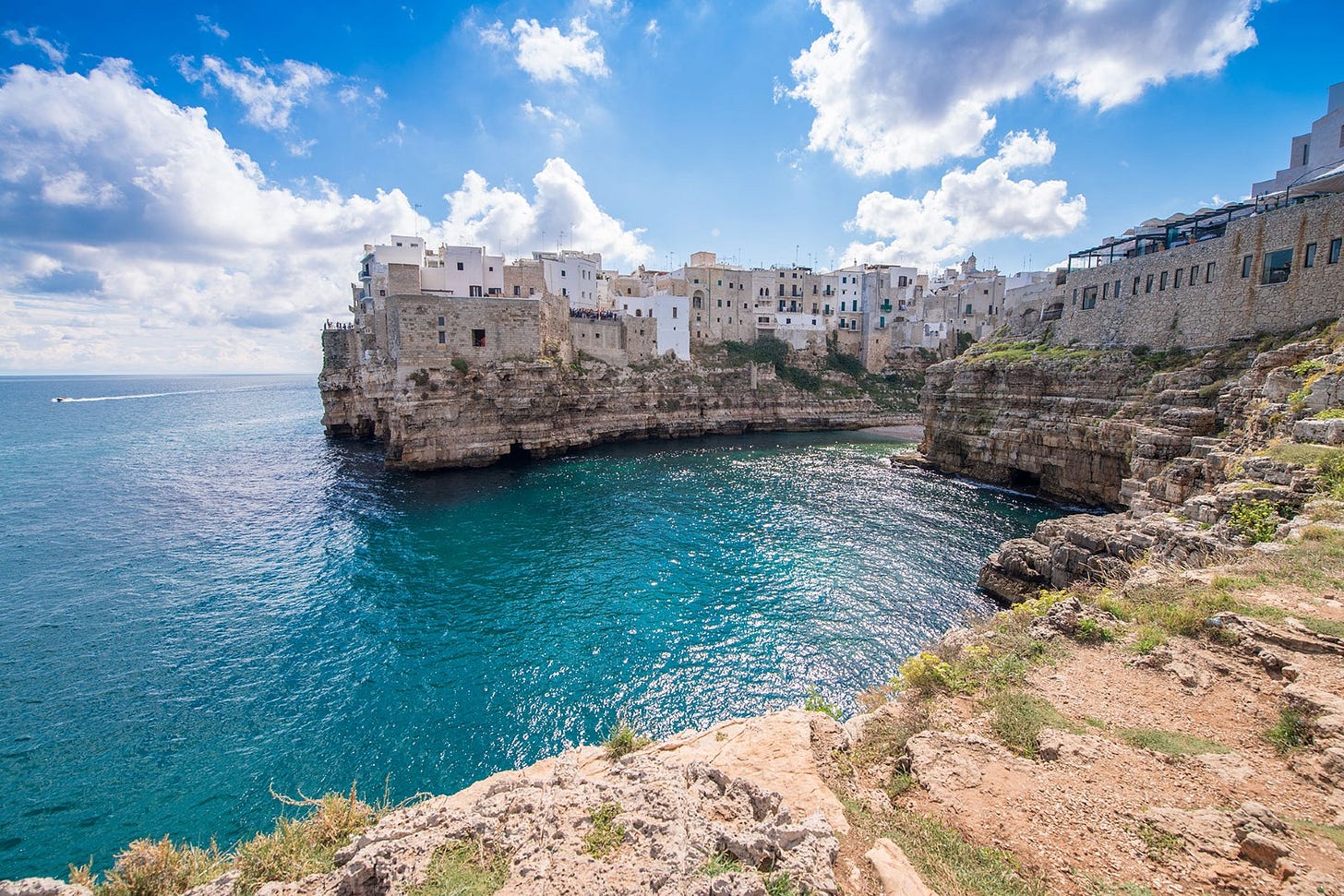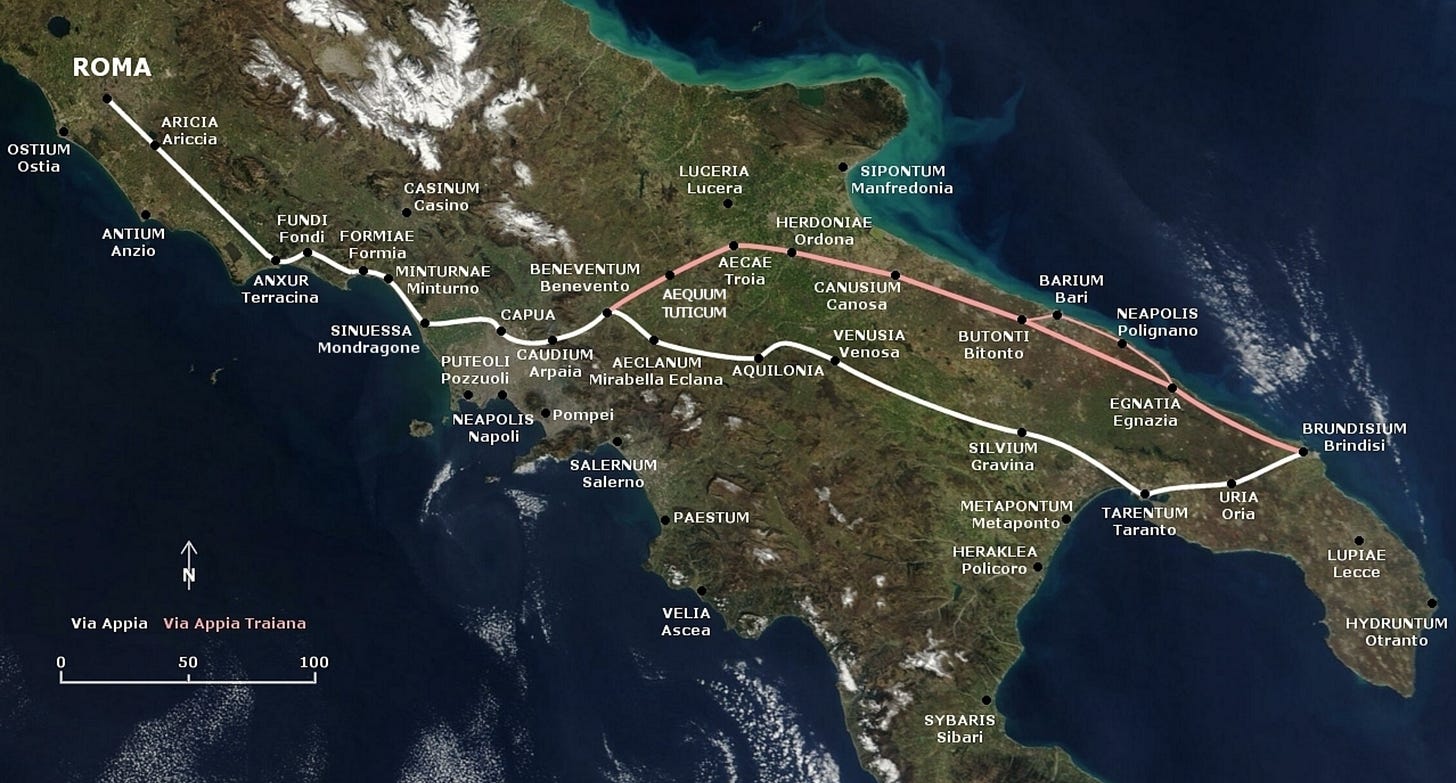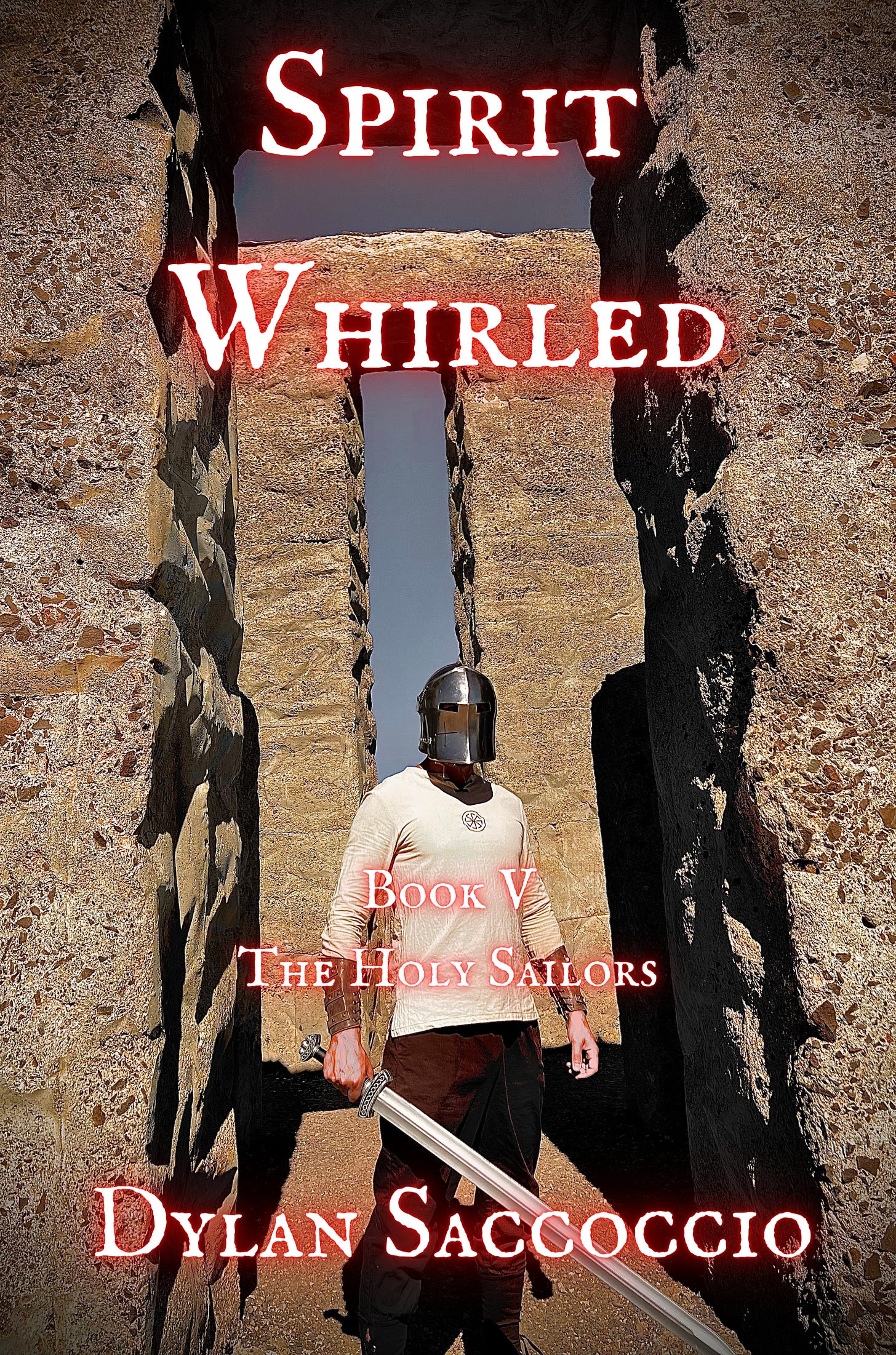Fresh Batch #41: Are the Ocean Baths Examples of Diffusion?
Possible Victorian, Roman, or Phoenician Remnants
I suspect ocean baths carved in rock (which could be ancient seafood farms) are signs of diffusion. The following all have one thing in common: their histories are unknown, which makes this task difficult to prove. Most of them are thought to be Roman. That may be the case, but there is another thing they have in common: they all exist in locations frequented by, or in the possession of, Phoenicians.
According to Betham, “Italy was the first great colony of the Phœnicians which improved on the state of civilization derived from their Tyrian ancestors, even more than Carthage.”


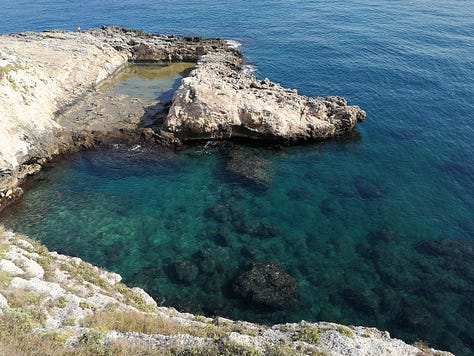
Apulia is the heel of Italy’s boot, so to speak. One of my families is from a town there called Lucera, which in Etruscan means Holy Wood. This is especially interesting because the Etruscans also shared the same mythology with the Phoenicians on account of being descended from them. It may be hard to see on the Etruscan plate-mirror if you can’t read Etruscan, but if reading from right to left, you’ll see that the last name is Aplu, a deity that the status quo claims is the Etruscans borrowing from Apollo, yet in my work, I demonstrate that it is the other way around. The Phoenicians civilized the Greeks. Their first great colony was Italy. The Etruscans are descended from the Phoenicians, which is why their language doesn’t conform to Indo-European (because it isn’t). The oldest Greek abecedarium is also the oldest Etruscan one. Therefore, one cannot claim that the Etruscans descended from Greeks and be correct according to the available information (should it be an authentic abecedarium). For all we know, they may be different branches of the same culture, but there is not enough evidence to claim that the Latins descended from Greek. There are only claims that presuppose that to be the case.



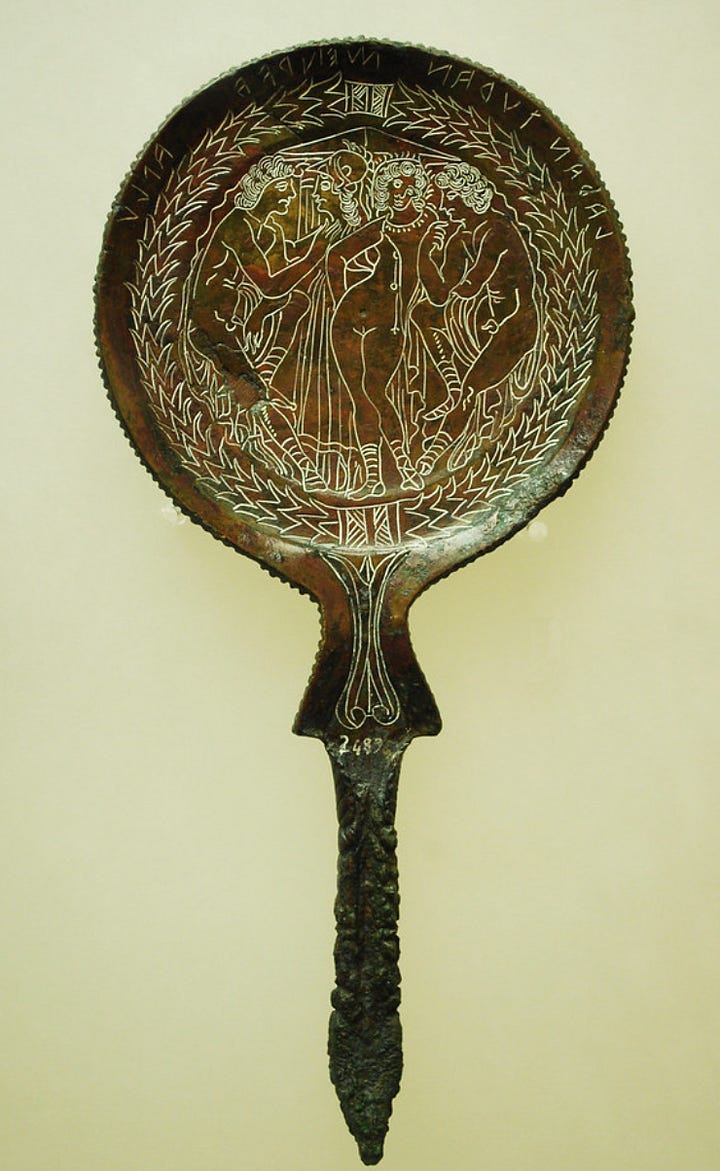
This is the ancient road that the Romans accessed this region by.
Without digressing too much into the history of Italy, it was important to observe the man-made baths carved into the rock, as well as it being the first great Phoenician colony. In The Holy Sailors, I demonstrated that the earliest alphabets of Ireland and the languages of Britain correspond to Phoenician and that Britain was peopled by Phoenicians as well as named by them on account of its rich content of tin that they mined. Thus, I introduce you to the Wormhole on Inis Mór.
Inishmore, Aran Islands (Ireland)









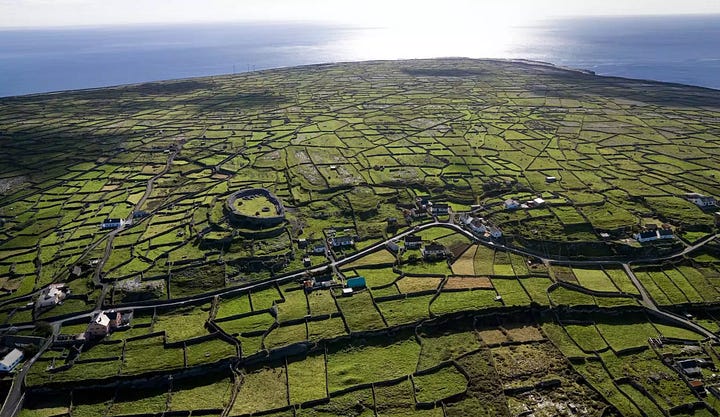
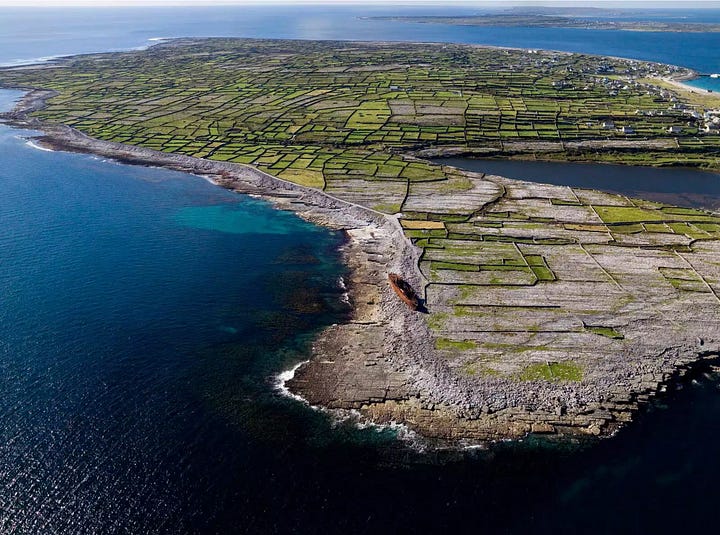
Inis Mór is also home to alleged prehistoric forts. I can’t corroborate this information, but one thing looks certain to me: someone mined or quarried these islands nearly to death. If it dates back as far as I suspect, it was likely a hotspot for Phoenician activity. However, perhaps all of this is the result of a different culture. I leave it with my readers for now.

If you’re interested in the ancient history of Britain and why these sites may be significant if they can be dated properly, read The Holy Sailors (click the image).
If you follow me on social media, these sites may not be new for you. However, I’ve got two more ocean bath sites just like these and both in different countries that I’ve never mentioned, totaling four different regions that may prove Phoenician diffusion.
Become a member to access the rest of this article.
Keep reading with a 7-day free trial
Subscribe to Ancient History, Mythology, & Epic Fantasy to keep reading this post and get 7 days of free access to the full post archives.




